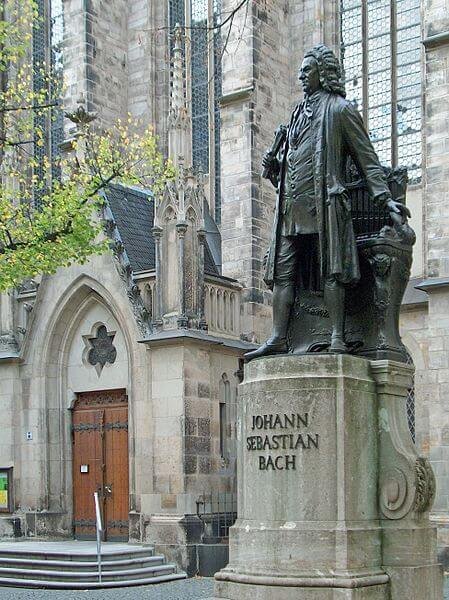Why Bach Cantatas
There is a long tradition of ensembles specializing in performing the Bach Cantatas. Some of the best-known, such as Emmanuel Music, the Bach Ensemble, and the Bach Collegium of Japan, have been around for many decades. Incredibly, some have performed all of the approximately 209 surviving cantatas; these include John Eliot Gardiner’s “Bach Cantatas Pilgrimage” and “Bach at One” at Trinity Wall Street, with a multi-ensemble cycle currently underway at the Montreal Museum of Fine Art. There have been dozens of Bach Cantata series in at least 21 countries on five continents. For musicians, the chance to perform even one of the cantatas is something special. How is it that for performers and listeners alike, this music—composed over two centuries ago-- “never gets old”?
In music, literature and visual arts, the quintessential elements of a masterwork are shared: technical mastery, artistry, innovation, the expressive power to connect and inspire. In all of these categories, Bach’s Cantatas provide a truly dazzling richness and depth. Combining craft, passion and imagination in equal parts, Bach somehow created a sum which comprehensively blew the lid off the whole artistic equation. Perhaps the most impressive quality of the Cantatas is their universality. Though composed “For the Glory of God Alone”, to provide persuasive inspiration for ordinary weekly worshippers, these works offer enough layers of complexity and compositional brilliance for a well-spent lifetime of scholarship. And from musical materials of consonance and dissonance, rhythm and line, Bach conjures an astonishing range of emotions from heartbreak to ecstasy.
There are a lot of good practical reasons for programming a new cantata series here in the Bay Area. For one thing, Bach Cantatas don’t actually get performed all that often. This is partly due to context—they are an odd fit for a typical concert program—and partly to varied requirements for instrumentation and voices. For another thing, there are a LOT of Bach Cantatas! Familiarity with the works as a whole requires us to hear more than a few of the most famous every year or two. Then there are reasons of supply and demand: the Bay Area is home to a deep early music community of experienced Bach players, as well as an audience devoted to this repertoire. We also hope to honor Bach by bringing his Cantatas to some new listeners. Last but far from least, musical works of art are only fully alive and real while they are being performed. Recorded audio is to live music what a fine reproduction is to a great painting: it only tells part of the story. As performers, our whole reason for being is to connect listeners with composers and their works by translating symbols into sounds. And there is nothing we would rather play than this repertoire!
In performing the Bach Cantatas, we hope to serve as curators and stewards, offering a varied and personal mix of context and background, translations, players’ perspectives and dialogue along with the music. We also hope to create a community around these amazing works, a Collective of listeners and players who share an appreciation and fascination for some of the greatest music ever written.
“It is a rediscovery of the world of which I have the joy of being a part. It fills me with awareness of the wonder of life, with a feeling of the incredible marvel of being a human being. The music is never the same for me, never. Each day it is something new, fantastic and unbelievable. That is Bach, like nature, a miracle."
— Pablo Casals
“Bach tells you what it's like to be the universe.”
— Douglas Adams
“The art of the Bach cantata is an exposition of the foundations and principles of the Christian faith, and none more searching or more inexorable, deeper or more precise, has ever been. The temporal life and the eternal, works and faith, mortality and death, sin and repentance, suffering and salvation--all the emotions and inspirations of the Christian soul exalted this, the greatest of preachers since Luther, not to theological abstractions but to a passionate presentation by symbolic means of an incomparably vivid musical imagination."
— Alfred Einstein

